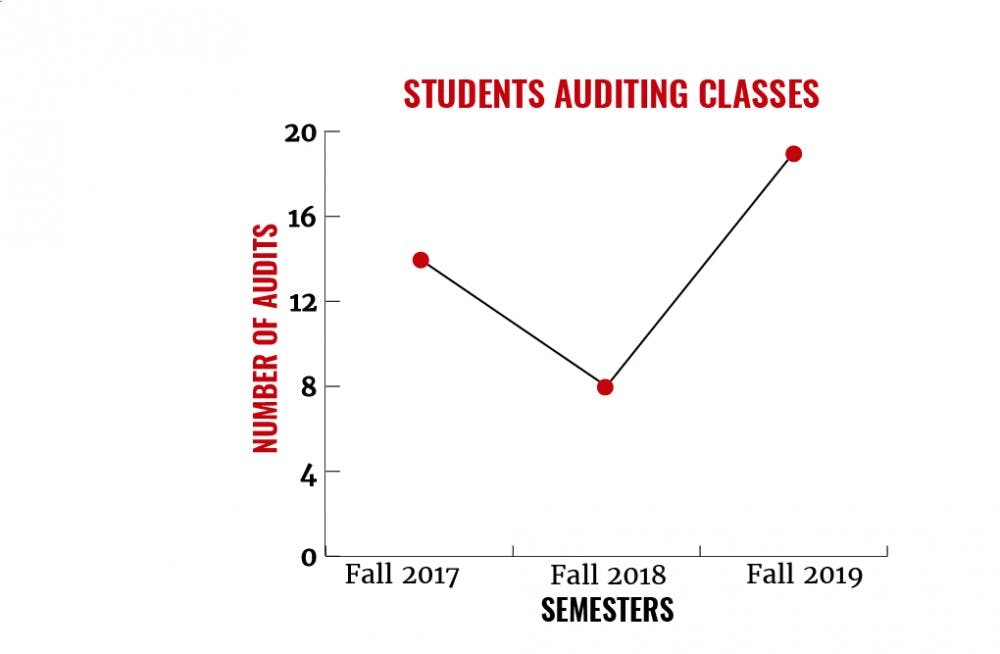As is expected of all Elon University students, senior Jordan DeVries met with her academic adviser before class registration.
The psychology major and Lumen Scholar was interested in taking a class about drug action, but with her major and scholarship, DeVries didn’t have the time in her schedule to add another class — let alone do all the homework, assignments and studying that comes with a 300-level course.
DeVries’ adviser had a solution — course auditing.
Course auditing allows students, faculty and staff to attend a class and learn all of the material without having to complete any of the actual course work or receive a grade. Last spring, DeVries audited PSY 350: Principles of Drug Action.
DeVries said that choosing to audit rather than enroll in a course helped reduce the stress and pressure she felt surrounding the class.
“Had I not been able to audit [the course], I probably still would have taken it, but it would have been much harder,” DeVries said. “I would have been a really sad, stressed person.”
Students are able to audit any course of their choosing as long as they meet the required prerequisites and pay a fee of $270.
To audit a course, students must first register for the class via OnTrack. Afterwards, the student must fill out the audit form on the Registrar’s website under the forms link. Once the form has been processed by the Registrar, students will receive an automated notification email and be charged the audit fee from the Bursar’s Office.
Students do not need to receive permission from their adviser to audit a course, but communication and advice from their adviser is recommended, according to the Office of the Registrar.
Town of Elon community members are also able to audit courses. However, any non-Elon students must first register as a visiting non-degree student and be approved by the Office of Admissions before registering to audit.
Members of Elon’s faculty and staff account for the majority of individuals who audit courses, according to the Office of the Registrar.
Alexander Taylor ’16, assistant registrar of communications, said the Office of the Registrar has been discussing ways to encourage interdisciplinary studies and furthered education through auditing.
“But rather [than] just being able to take a course that might be challenging for them, [it] doesn’t have this like gross impact on what their future’s going to be like,” Taylor said.
DeVries said class auditing helped her succeed in her other classes.
“I learned a lot of things in that class that I wouldn’t have learned anywhere,” DeVries said. “It has given me a better ability to master content outside of that class.”


